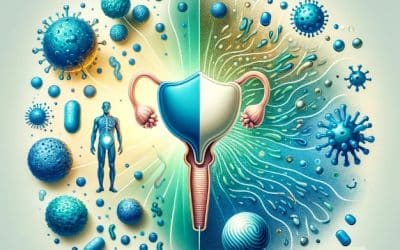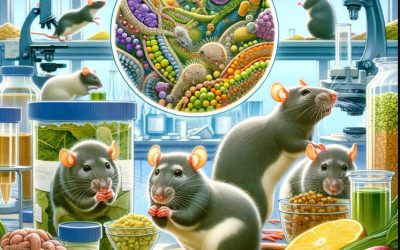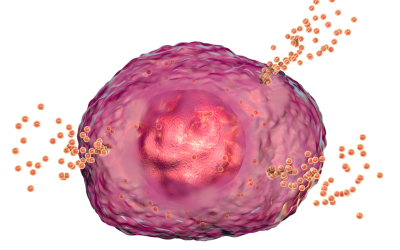Vitamin D and Your Immune System
The nutrient I wanted to summarize is Vitamin D. I have been fascinated with the role of vitamin D in health topics such as autoimmunity for my own personal reasons. There is increasing epidemiologic evidence linking vitamin D deficiency and autoimmune diseases including multiple sclerosis (MS), rheumatoid arthritis (RA), diabetes mellitus (DM), inflammatory bowel disease and systemic lupus erythematosus (SLE) (Aranow, 2011).
Vitamin D is sometimes called a pro-survival molecule, having anti-inflammatory and immunomodulating action, giving it “stress-quenching activity” (Chirumbolo, Bjorklund, Sboarina, & Vella, 2017). In fact, research is demonstrating that vitamin D may have the abilities beyond its immune/anti-inflammatory role by inhibiting metabolic stress and energetic expenditure in a cell microenvironment (Chirumbolo et al., 2017).
Vitamin D is considered to have a pleiotropic role in the immune system. According to Chirumbolo e al, Vitamin D is involved in the innermost balance of energetics and survival by the cell in its involvement in intracellular organelles of the cell such as the endoplasmic reticulum (ER). An interesting suggestion comes from evidence of Vitamin D’s involvement in macrophage differentiation and foam cells” (Chirumbolo et al., 2017).
Vitamin D is growing a reputation to enhance human health in at least 4 processes. Innate immunity, acquired and regulatory Immunity, inflammation, and gut integrity. The area I wanted to dig deeper into was the role of Vitamin D in innate immunity.
Immune regulation
Researchers are finding that T cells rely on Vitamin D to become activated to detect and kill pathogens. According to Professor Geisler from the Department of International Health, when a T cell is exposed to a foreign pathogen, it extends the Vitamin D receptor as a signaling device to search for Vitamin D. “This means that the T cell must have vitamin D or activation of the cell will cease. If the T cells cannot find enough vitamin D in the blood, they won’t even begin to mobilize” (Science Daily, 2010). T cells that are successfully activated can transform either into killer cells or helper T cells, but they need Vitamin D to perform this successfully.
Inflammation
The activity of vitamin D involves the gut-brain axis, and may play a role in the “hygiene hypothesis” (Chirumbolo et al., 2017). As a modulatory hormonal molecule, vitamin D can inhibit an inflammatory response and activate regulatory immune mechanisms. However, it is also “able to induce the production of antibacterial peptides from mononuclear cells and help innate cells to counteract bacterial infection” (Chirumbolo et al., 2017).
In a general way, some scientists consider Vitamin D as an interleukin rather than a “pleiotropic exogenous vitamin”, due to its ability to participate in innate immunity and inflammation, similar to a cytokine. “Fundamentally, vitamin D dampens the LPS-induced inflammation in mononuclear immune cells (monocytes, macrophages, and DCs) acting on nuclear factor–κB (NF-κB) or p38MAPK via the VDR, which is fundamental to inhibit inflammation” (Chirumbolo et al., 2017).
Infections
It was interesting to find that Vitamin D has been previously used to treat infections such as tuberculosis before the era of effective antibiotics, using cod liver oil. In fact, there have been multiple cross sectional studies that associate lower levels of Vitamin D with increased infections. This is thought to do be due the effects Vitamin D has on the innate immune system.
Vitamin D plays an important role in innate antimicrobial response. It is thought that when macrophages recognize LPS through TLR, this can increase expression of the vitamin D receptor, and subsequent transcription of antimicrobial peptides (AMP’s) such as cathelicidin and beta defensin (Aranow, 2011). These peptides show a broad spectrum of antimicrobial activity against bacterial, enveloped viruses and fungi (Kosciuczuk et al., 2012).
AMP’s are super important, since they involve the disintegration of cell membranes of organisms toward which the peptide is active, but do not act on healthy host cell membranes (Kosciuczuk et al., 2012). Some actions of AMPS’s such as cathelicidins are mediated though their interaction with other cells which are the important part of innate immune system, like monocytes, dendritic cells, T cells and epithelial cells (Kosciuczuk et al., 2012) The susceptibility to bacterial infections of animals and humans with lowered expression of antimicrobial peptides shows their crucial role in the immune response.
Adaptive immune regulation
Other effects vitamin D has on the immune system is involved in B and T cell mechanisms. Vitamin D can inhibit B cell proliferation while blocking B cell differentiation and immunoglobulin secretion. It can also suppress T cell proliferation resulting in subsequent shift from TH1 to TH2 phenotype.
It can also affect T cell maturation with a shifting away from TH17 expression, while facilitating the induction of T regulatory cells. “These effects result in decreased production of inflammatory cytokines (IL-17, IL-21) with increased production of anti-inflammatory cytokines such as IL-10” (Aranow, 2011). It can also inhibit monocyte production of inflammatory cytokines such as IL-1, IL-6, IL-8, IL-12 and TNF-a.
It additionally inhibits DC differentiation and maturation, as evidenced by a decreased expression of MHC class II molecules, costimulatory molecules and IL-12. Inhibition of DC differentiation and maturation is particularly important in the context of autoimmunity.
In a nutshell…
I believe we are just starting to uncover the effects the Vitamin D on the immune system, and it is something I am very interested in learning more deeply. Some areas to look further include VDR mutations, why some people experience side effects from Vitamin D supplementation, enhancing vitamin D bioavailability from food and gut microbes. “Given the importance of vitamin D for a functional immune system and the profound deficiency observed in autoimmune disease, as well as the correlation of deficiency with more active disease, an important issue is whether or not the immune components in autoimmune disease are capable of responding appropriately to vitamin D” (Aranow, 2011).
Now please do not take this blog as an open invite to start taking loads of vitamin D. As I will explain in my next blog series, the Vitamin D Paradox, you will learn that not only is the assessment of vitamin D in question, but that taking loads of vitamin D may not be appropriate for you.
References
Aranow, C. (2011). Vitamin D and the immune system. J Investig Med, 59(6), 881-886. doi:10.2310/JIM.0b013e31821b8755
Chirumbolo, S., Bjorklund, G., Sboarina, A., & Vella, A. (2017). The Role of Vitamin D in the Immune System as a Pro-survival Molecule. Clin Ther, 39(5), 894-916. doi:10.1016/j.clinthera.2017.03.021
Kosciuczuk, E. M., Lisowski, P., Jarczak, J., Strzalkowska, N., Jozwik, A., Horbanczuk, J., . . . Bagnicka, E. (2012). Cathelicidins: family of antimicrobial peptides. A review. Mol Biol Rep, 39(12), 10957-10970. doi:10.1007/s11033-012-1997-x
Science Daily. (2010). Vitamin D crucial to activating immune defenses. Retrieved (2018, June 3) from https://www.sciencedaily.com/releases/2010/03/100307215534.htm








